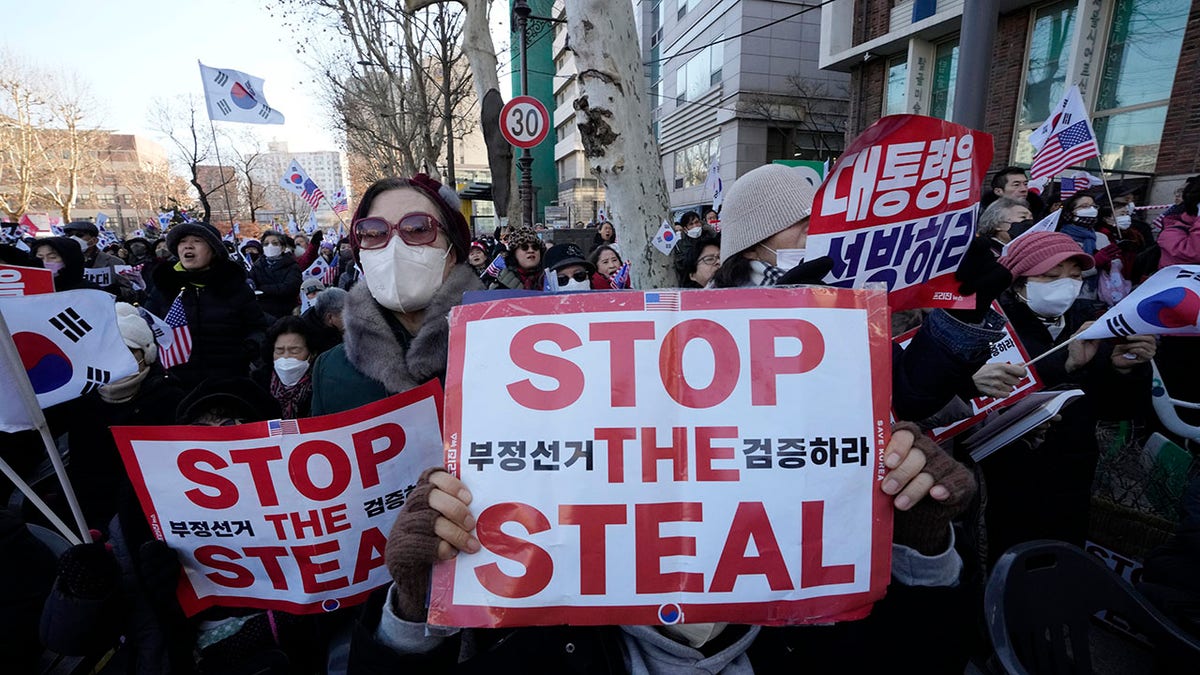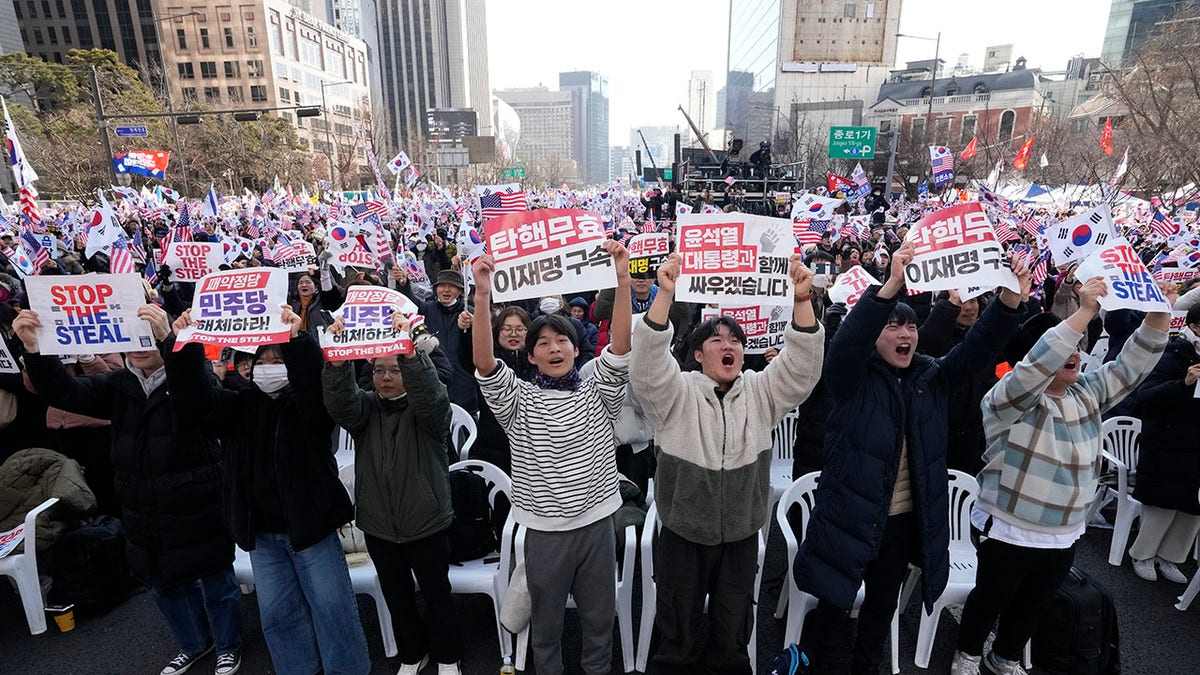South Korean prosecutors have charged President Yoon Suk Yeol with leading a rebellion after he briefly imposed martial law last month, according to the country’s opposition party and several South Korean media outlets. .
Yoon, a conservative, enjoys presidential immunity from most criminal prosecutions, but that privilege does not extend to allegations of rebellion or treason. According to the law in South Korea, the leader of a rebellion can be sentenced to life in prison or the death penalty.
“The prosecution has decided to indict Yoon Suk Yeol, accused of being a leader of the insurrection,” Democratic Party spokesperson Han Min-soo said at a news conference, according to Reuters . “The punishment of the leader of the insurrection finally begins.”
The decision, announced Sunday, makes Yoon the first sitting South Korean president to face indictment and a criminal investigation, according to the Washington Post.
Yoon became the second conservative president to be impeached in South Korea when the opposition-led parliament voted to suspend his office on December 14.
INCHARGED SOUTH KOREAN PRESIDENT DETAINED WEEKS AFTER MARTIAL LAW CHAOS
Impeached South Korean President Yoon Suk Yeol attends the fourth hearing of his impeachment trial over his short-lived imposition of martial law at the Constitutional Court in Seoul, South Korea, January 23, 2025. (Jeon Heon Kyun/Pool Photo via AP)
He was arrested earlier this month over the Dec. 3, 2024, martial law decree that plunged Asia’s fourth-largest economy and a key U.S. ally into political turmoil. Yoon has strongly denied any wrongdoing, calling his martial law a legitimate act of governance intended to raise public awareness of the danger posed by the liberal-controlled National Assembly, which has obstructed his agenda and indicted top officials.
In declaring martial law, Yoon called the assembly a “den of criminals” and vowed to eliminate “blatant North Korea supporters and anti-state forces.”
He sent troops and police to the assembly, but enough lawmakers still managed to enter an assembly hall to vote unanimously against Yoon’s decree, forcing his cabinet to lift it.
Although Yoon rescinded the decree after just six hours, the imposition of martial law was the first of its kind in South Korea in more than 40 years and evoked painful memories of past dictatorial regimes of the 1960s and 1980s.
Yoon had resisted efforts by investigating authorities to question or arrest him. After a days-long standoff between his security detail and authorities, Yoon was subsequently apprehended on January 15 during a massive law enforcement operation at his presidential complex, becoming the first sitting South Korean president to be arrested. Yoon, himself a former prosecutor, has been held in solitary confinement ever since, according to Reuters.

Supporters of South Korean President Yoon Suk Yeol attend a rally to oppose his impeachment near the Constitutional Court in Seoul, South Korea, Thursday, Jan. 23, 2025. (AP Photo/Ahn Young-joon)
SOUTH KOREA PRESIDENT AVOID ARREST ATTEMPT AFTER LONG-HOUR CHARGE
After a local court approved a formal arrest warrant on January 19 to extend Yoon’s detention, dozens of his supporters stormed the court building, destroying windows, doors and other property, according to the Associated Press. They also attacked the police officers with bricks, steel pipes and other objects. The violence injured 17 officers and police said they arrested 46 protesters.
Separate from criminal legal proceedings, the Constitutional Court is currently deliberating whether to formally remove Yoon as president or reinstate him in office.
The investigation into Yoon was led by the Senior Officials Corruption Investigation Bureau, but since his arrest, Yoon has refused to attend the IOC’s questioning, saying he has no legal authority to investigate on allegations of rebellion. The IOC said it could investigate Yoon’s rebellion allegations because they are linked to his abuse of power and other allegations.

Supporters of South Korean President Yoon Suk Yeol attend a rally to oppose his impeachment in Seoul, South Korea, Saturday, Jan. 25, 2025. (AP Photo/Ahn Young-joon)
The IOC sent Yoon’s case to the Seoul prosecutor’s office on Friday and asked it to charge him with rebellion, abuse of power and obstruction of the National Assembly.
In a statement released Saturday, Yoon’s defense team urged prosecutors to immediately release Yoon and open an investigation into the IOC.
South Korean media, including Yonhap News Agency, reported on Sunday that the Seoul Central District Prosecutor’s Office had charged Yoon with rebellion.
CLICK HERE TO GET THE FOX NEWS APP
Yoon’s defense minister, police chief and several other military commanders have already been arrested for their role in the martial law decree.
The Associated Press contributed to this report.






